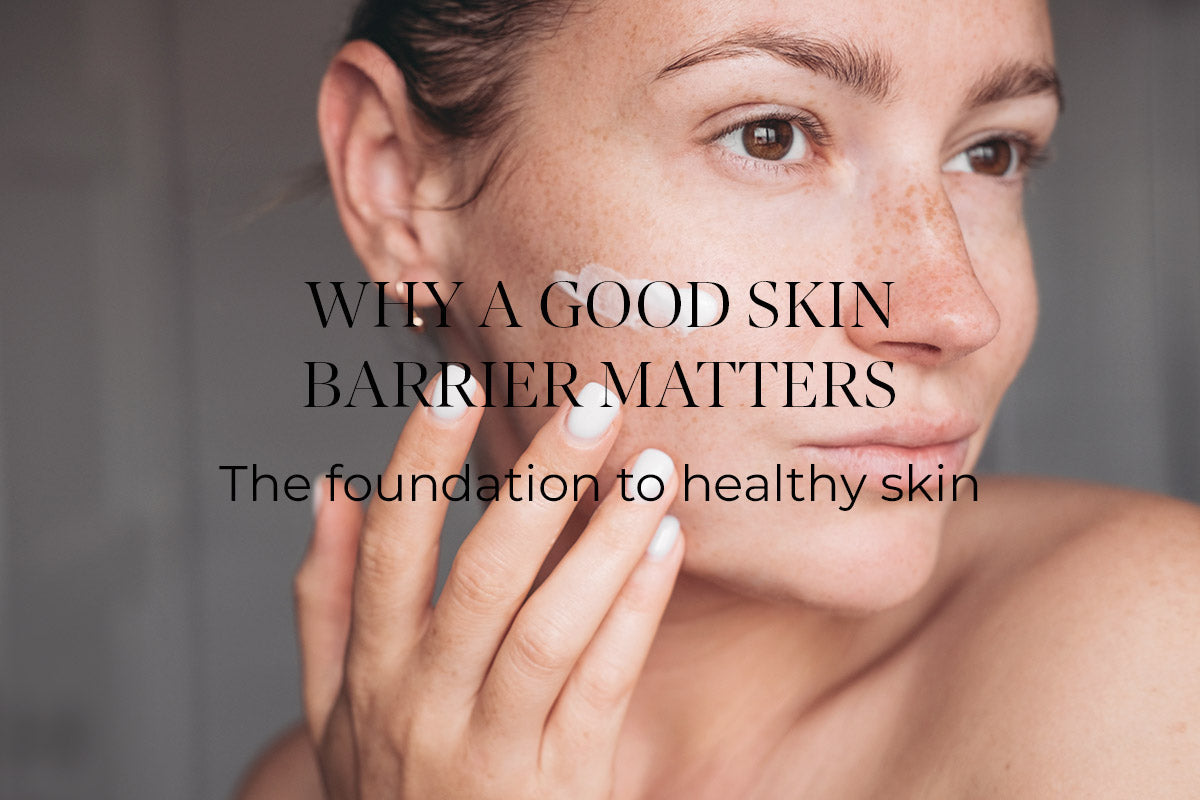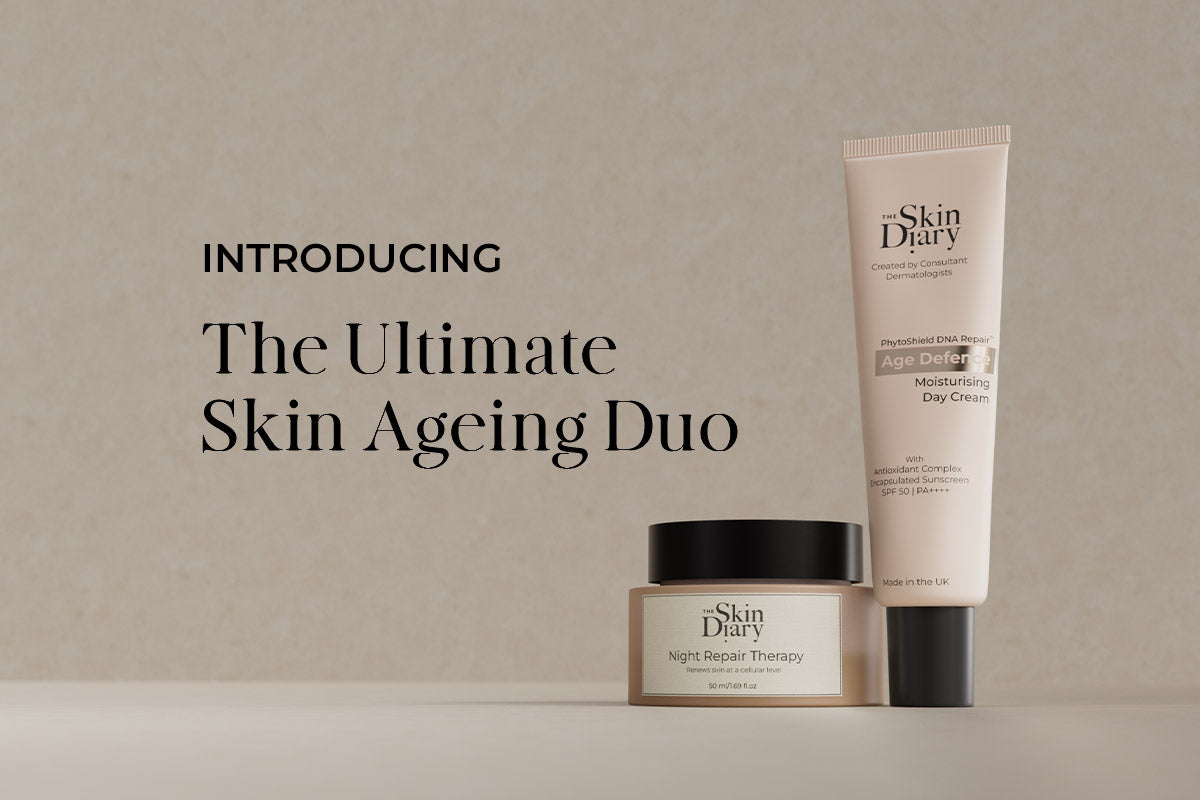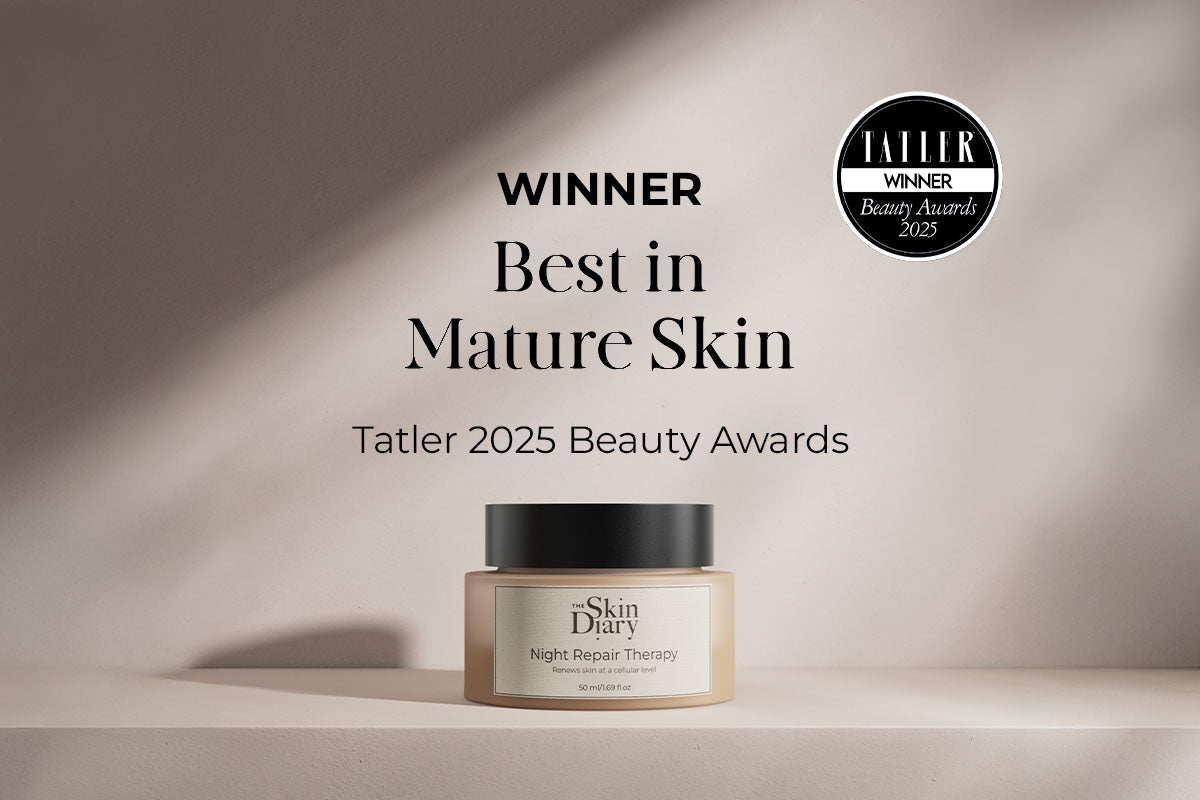If you’re interested in skincare, you’ll no doubt have heard of the importance of the skin barrier and having a ‘healthy skin barrier’. However, you might be wondering what that actually means and how this contributes to healthier, younger-looking skin.
Dr. Tamara Griffiths, Consultant Dermatologist and Honorary Senior Lecturer at the University of Manchester and The Skin Diary Expert, explains what this barrier is, how it plays into skin longevity and why we need to care for it—extending far beyond just the cosmetic.
What is the skin barrier?
Although we spend a lot of time talking about the appearance of the skin, the function of our skin extends far beyond its appearance. It’s our largest organ and plays an important role in our systemic health. Understanding the health of our skin and looking after it helps us as we age.
When we talk about healthy skin, it all starts with a healthy skin barrier. We like to think of the skin as a "bricks and mortar" structure; where skin cells (corneocytes) are the bricks and lipids form the mortar. A healthy skin barrier can prevent bacteria and pollutants from entering, retains moisture and hydration and regulates the immune response to maintain harmony within the skin.

When damaged or compromised (be it through ageing or environmental factors), problems with the skin can occur. You may find increased inflammation (and flare-ups of certain conditions), weak cells send damaged signals, and the skin’s immune system can become overactive, which leads to issues including redness, irritation and collagen breakdown.
This is important because it acts as a protective barrier. As we age, this barrier can get compromised through intrinsic and extrinsic ageing factors, including barrier dysfunction, inflammation and deterioration of skin structure. This can increase risks of factors such as:
Skin cancer - The skin’s ability to combat rogue or cancerous cells can diminish as we age
Fragility syndrome - The fragility of our skin is important to note as thinning skin becomes prone to tears, poor healing and even infections.
Systemic inflammation - Chronic inflammation can occur if a breakdown of the skin barrier occurs.
How to maintain a healthy skin barrier

There are a few ways to maintain a healthy skin barrier. But the main one is by preventing its breakdown in the first place with good habits. These can include:
Maintain a consistent skincare routine that prioritises skin health over trends. This includes gentle cleansing daily, using antioxidants and sunscreen in the morning and retinoid-based products where necessary at night. Not forgetting a good moisturiser that helps keep your skin hydrated. Prioritising a healthy lifestyle, including a well-rounded diet and regular exercise also helps keep your skin feeling (and looking) in great shape. The future of skin health lies in prevention.
How to know if your skin barrier is impaired?
You'll experience factors like redness, irritation, flaking, tightness, flare-ups in conditions like rosacea and dermatitis. You may also find fine lines and wrinkles look more visible and hyperpigmentation more severe, for example.
If your skin is feeling unhappy, chances are your barrier could do with some love.
The future of preventative skincare and barrier health
Ageing is inevitable, but poor skin health doesn’t have to be. If you prioritise repairing damage, hydration and maintaining immune balance, we can promote not just healthier skin, but also a healthier life.
Night Repair Therapy exemplifies this approach—blending science, innovation, and care to support skin health from the cellular level upward. By addressing structural, functional, and immune challenges, Night Repair Therapy offers real solutions to the health problems dermatologists see every day.
As dermatologists, we’re shifting the narrative from fighting age to embracing it with strength, vitality, and resilience.





